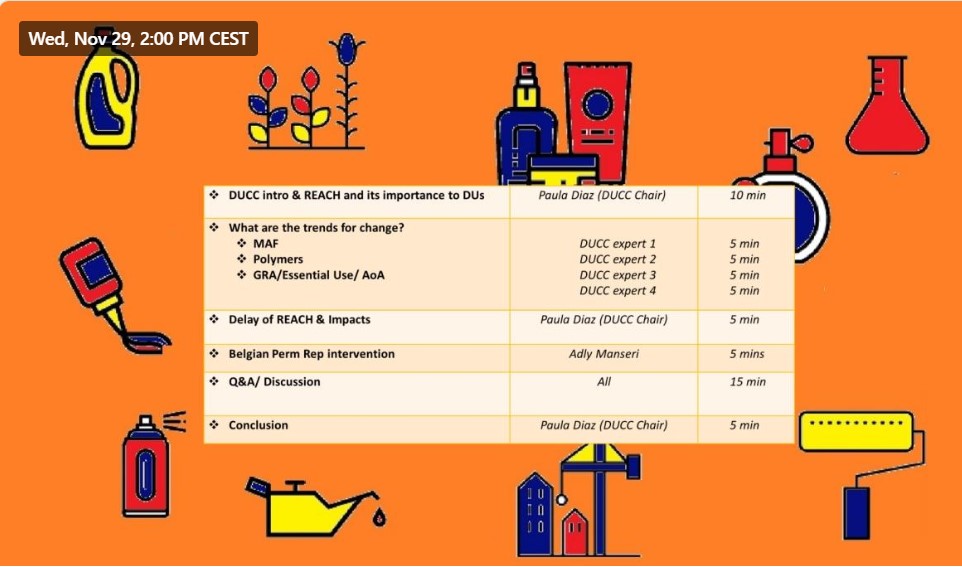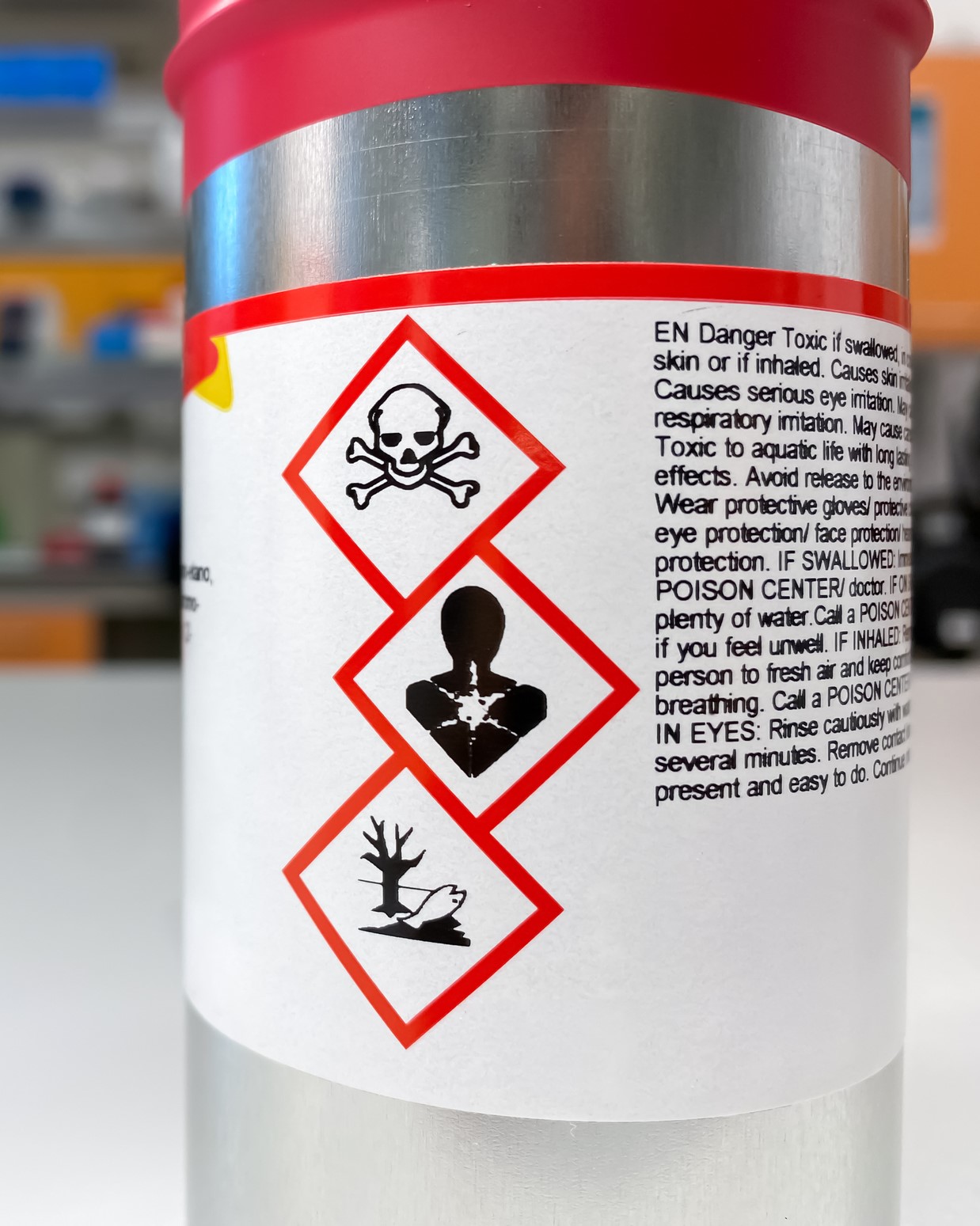


The role of innovation in shaping the future of the construction industry
Interview with Eric Dehasque, President of the European Federation for Construction Chemicals (EFCC) 2024 will be an exciting new year with the European elections ahead. EFCC expects that the new European decision makers will put more emphasis on safeguarding the competitiveness of the European industry and ensure incentives for innovation. We asked Mr. Eric Dehasque, President of EFCC, on the role of innovation in the construction industry and its impact on sustainability and performance.
Online Info session on REACH
EFCC with DUCC member associations is organising a one-hour information session to discuss the importance of REACH to downstream users, relevant topics for authorities before the REACH revision, the trends for change and impacts of the REACH delay. The REACH legislation is a cornerstone regulation for the manufacture of chemical products and has a significant impact on DUCC members. Therefore, DUCC members wish to engage proactively and constructively in discussions on this topic.
Reiteration of the major negative impact on industry of the current CLP proposal regards minimum requirements for labelling
As a follow-up of the industry cross sector group letter of 5 September 2023, today industry released a new joint letter to reiterate the major negative impact on industry of the current CLP proposal as regards minimum requirements for labelling. In the new letter industry invites legislators to keep an open mind going in the trilogue discussions regarding minimum font size requirements.
EFCC position on the European positive list under the Drinking Water Directive
Today EFCC submitted its position in reply to the public consultation on the delegated act that supplements the Drinking Water Directive and that lays down the procedure for amending the European positive list of starting substances, compositions or constituents to be used in the manufacture of materials or products intended to be in contact with drinking water. EFCC is concerned that the increased data collection and analytical requirements planned to be required for the positive listing will put a significant burden of the manufactures and downstream users. In addition to this, EFCC considers that neither the DWD nor this implementing act provide sufficient protection for the shared data and confidential business information and as such is not protecting the intellectual property of the European economic operators. As downstream user formulators we fear that the number of applicants for the positive listing will be very limited resulting in a lack of substances available for drinking water materials after 2025. This would lead to a significant reduction of construction products available for drinking water installations which could put the distribution of the drinking water to European consumers via the pipe systems at risk.
EFCC joins cross-sector call for a rethink regarding CLP revision
EFCC together with several industry federations calls for urgent dialogue and a rethink regarding CLP Revision. We focus on three key aspects that will have a major negative impact on industry and the environment: - he new 6-month timeline for label updates instead of the 18 months transition period provided in Adaptation to Technical Progress (ATP) to CLP for harmonised classifications to become mandatory - the tabled amendment within the European Parliament to prohibit environmental claims on mixtures classified as hazardous or carrying supplemental labelling - the proposed requirement of a minimum font size - we suggest to follow ECHA’s guidance of 1.2mm x-height as the minimum font size
EFCC invites professional and industrial users of PU-based construction chemicals to complete the necessary training courses by 24 August
The restriction of Diisocyanates will be in force as of 24 August 2023. Professional and industrial users of PU-based construction chemicals have to complete the necessary training courses and get their certificate before the restriction applies.
EFCC with other DUCC members released the last statement before the Council vote on the revision of the CLP
Tomorrow the European Council votes on the compromise proposal on the revised EU legislation on hazard classification, labelling and packaging of chemicals (CLP). EFCC with other downstream user associations reiterated their concerns related to the revised proposal. We request more flexibility on the labelling requirements and reasonable transition periods for the application of the new criteria. You can read more details below.
EFCC supports the joint statement on the draft Taxonomy Environmental Delegated Act
EFCC, as member of the Construction 2050 Alliance, supports the joint statement of its members on the draft Taxonomy Environmental Delegated Act published in April 2023. For the construction sector the recommendations of the draft Environmental Delegated Act show fundamental weaknesses in terms of the usability and practicability . Read more details below: